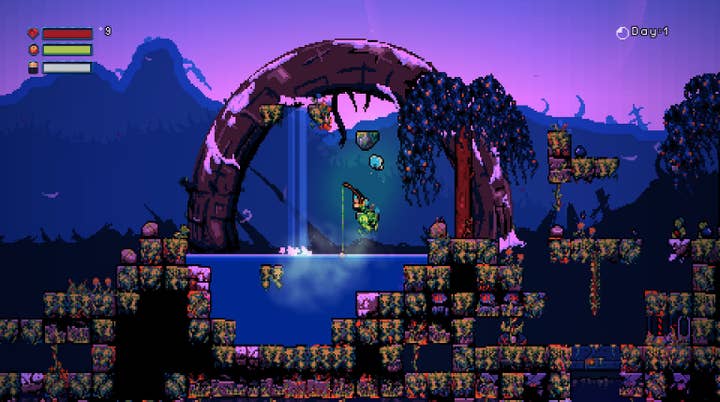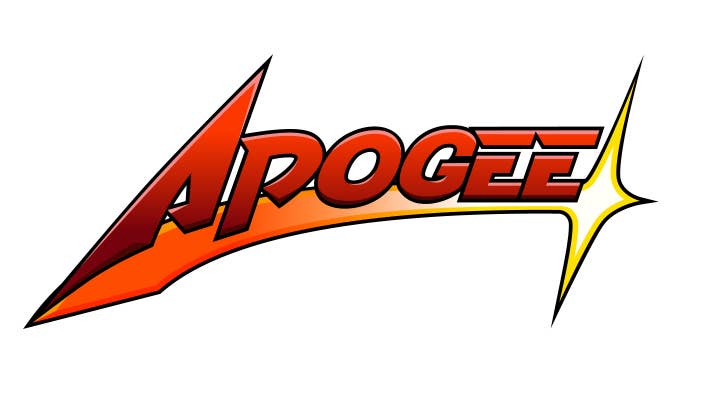Scott Miller on relaunching Apogee Entertainment as indie publisher
Founder of original Duke Nukem developer talks about the company's latest incarnation and its strategy for cherry-picking diamonds in the rough
It's been a couple decades since the peak of Apogee Software, but company founder Scott Miller and long-time executive Terry Nagy want to breathe new life into the original Duke Nukem developer and Wolfenstein 3D publisher with a new-ish name and a new purpose.
Miller and Nagy today unveiled the slightly rebranded Apogee Entertainment, an indie publisher with four titles under its wing already and aspirations to add more.
Speaking with GamesIndustry.biz, Miller traced the seed of the new Apogee back to last year, when Nagy approached him with the idea of relaunching the brand along with obtaining the rights to the name from 3D Realms (a former division of Apogee and currently a separate company, of which Miller remains a co-owner).
"We decided here in the last year to resurrect and relaunch Apogee, to kind of reclaim our title as the original indie publisher," Miller says. "We're working with indie developers again and cherry picking what we think are the diamonds in the rough. And there are a lot of diamonds out there."
"We're working with indie developers again and cherry picking what we think are the diamonds in the rough. And there are a lot of diamonds out there"
As for how Apogee plans to find those diamonds, Miller's answer is perhaps surprisingly straight-forward. After so long in the business, he and Nagy have plenty of contacts and connections throughout the industry, and they've used them to identify a couple projects with potential. But Miller said he's also found a couple more just looking around on Kickstarter and Steam Early Access, or browsing game dev Twitter.
There are a lot of indie publishers on the hunt for those diamonds who have access to those same techniques, but Miller doesn't seem terribly concerned about the competition.
"There are so many indie projects out there now I think there are more than enough to go around for the publishers who are dealing in this market," he says, adding that the Apogee name and his lengthy history in the industry will ensure developers know "we're not some new kids on the block just trying to sign their game."
Apogee Entertainment is offering its developers funds, porting assistance, marketing, localization, and bug testing, some of those in conjunction with external partner firms. But those are fairly standard offerings for indie publishers. So what is Miller relying on to be Apogee's differentiating factor?
"I think one of the areas we excel at is the design guidance we give our teams," Miller says. "And this goes back to even early Apogee and 3D Realms games... I don't know if other publishers do that or not, but I think we're pretty darn good at that."
"When teams are putting their own creative vision into their work, they're more passionate about it, and more dedicated, and we're going to get their best effort"
That was something he says Apogee excelled at, whether in its own titles like Duke Nukem or in its role as publisher of id Software's Wolfenstein 3D or producer on Remedy's Max Payne.
"What makes a fun game is still pretty relevant, and always will be relevant," Miller says. "You want a good user interface, good controls, fun things to do in the game. You want player decisions and agency to really matter. I haven't seen that change much over the years."
Beyond that, Miller says Apogee Entertainment will be fairly "pro-developer" in its approach, offering suggestions for improvements rather than mandates.

"When teams are putting their own creative vision into their work, they're more passionate about it, and more dedicated, and we're going to get their best effort," Miller says, adding, "We try not to dictate anything and just guide teams in the right direction. But we pick projects to begin with that we feel are already on the right path."
The first of those projects to be announced is Residual from Orangepixel, set for release this fall.
While the procedurally generated space survival game has a pixel art style just a likely to get the "retro" label as Apogee's biggest hits, Miller doesn't think it -- or any single game, really -- will perfectly convey what people can expect from an Apogee game. He notes that even in its original lifespan, Apogee games covered side-scrolling platformers, shoot-'em-ups, first-person shooters, and pinball games.
"We were all over the map, and we plan on being all over the map here also," Miller says. "What we're really looking for is games that have a strong fun factor, that are easy to get into. I don't think we're going to do any games like Cuphead that are enormously difficult; that's not really our thing. "
Even if Apogee's approach to games remains the same, the conceivable ceiling of success for a video game has grown immensely since Miller first founded Apogee. There's more room for grander ambitions, and the company's slight rebranding speaks to that.
"For us we'd rather use the word 'entertainment' because it's more on point for what we're going for here," Miller says. "It would be nice to see some of these games branch out into other entertainment media at some point, maybe a board game or comics, or who knows what."
While Miller has lofty ambitions for how Apogee's new games could grow, his ambitions for the company itself are somewhat modest by comparison.
"I don't think we'd ever want to have more than eight to ten projects under our belt at any given time," Miller says of how large the company could scale. "That way the upper management like myself can give each project its due in terms of attention. We want to stay pretty flat and personal as a company.
"Terry and I definitely want to stay intimately involved with all the projects, develop relationships with all the teams, and not have at some point a layer of middle management that's doing that."

